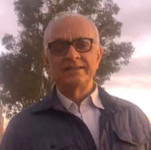
We use Google Cloud Translation Services. Google requires we provide the following disclaimer relating to use of this service:
This service may contain translations powered by Google. Google disclaims all warranties related to the translations, expressed or implied, including any warranties of accuracy, reliability, and any implied warranties of merchantability, fitness for a particular purpose, and noninfringement.

Highlights
- The problems seen in the Electricity Authority and the governance style that uses its management as a scapegoat are unfortunate, regardless of who is trying to take the respect of an organization that is on the way to progress.
- The question is not limited to the disadvantage of an institution. Instead, why have we remained innocent and orphaned even when the intention of our leaders is distorted and integrity has fallen? It is clear that the answer should not be delayed.



The dispute over cutting and connecting lines at the Electricity Authority has given meaning to the Nepali proverb, ``a journey to nowhere, in Hadigaon''. In this game, two people, Prime Minister KP Sharma Oli and outgoing Prime Minister Pushpa Kamal Dahal, are calling each other guilty.

They are bickering like two toddlers. And, in the process, they are making the Nepali people frustrated and angry. The reality of how the word good governance is being used as a weapon to fool the people in Nepal is starting to be seen in front of everyone. In this process, the Electricity Authority has become like a playground for children. Sometimes it goes east, sometimes west. There is a growing concern that the power authority will deteriorate due to the kick of the rulers.
Management of Electricity Authority
One of the main criteria for the management efficiency of any financial institution is the profit it earns on total sales. Apart from this, there are many other parameters of management efficiency, but the percentage of profit becomes important for organizations aiming to increase production by increasing investment. From this point of view, in 2015, the authority's total income before paying tax to the government was 30 billion. 17 percent of the total sales amount or 5.1 billion was a loss. In 2024, the authority's income is around Rs.1.15 billion and profit before tax is Rs.13.3 billion. Net profit is 9 percent. Therefore, looking at the data, the authority has made good progress. A profit of 9 percent of total sales is considered a good return for power companies anywhere.
This is not just a statistic but a basic measure of management efficiency. No one would hesitate to thank Kulman Ghisingh and his team who lead the authority with this standard approach. The success of the management is evident even if we look at the data that only controls the leakage of electricity. Generally, a net income above 5 percent of sales is considered good for electric companies.
Many good companies have earned up to 15 percent. Due to this, the 'dividend' received by the shareholders of the company becomes very attractive. From this point of view, the authority has to say that the earning percentage is good. As the Authority has strengthened its financial position using government support, its shares can now be sold at a premium in Nepal's stock market. In my estimation, a share of Rs.100 is likely to sell up to Rs.300. With the support of the government, the authority itself will be able to issue new shares and maintain 50 percent public ownership in this institution, and collect a few billion rupees as premium from the stock market.
Even in neighboring India, 51.34 percent of the shares of Power Grid Corporation, an important state-owned energy company, are owned by the government, while the remaining 48.66 percent of shares are owned by the general public. In Nepal, the government will be able to find new sources of investment to boost the private sector and raise thousands of new shareholders in the new electricity foundation building campaign. It will be a great dishonesty to the people to destroy this possibility by two 'experienced' current and former Prime Ministers with the money they gave without interest.
tariff dispute
The tariff dispute has brought a situation of confrontation between the government and the authority. This is unfortunate. What is not said by anyone but suspected by everyone is that the current government does not like the head of the authority. Similarly, since he was appointed by the Prachanda government, the leaders of that party have forcibly politicized Kulman's personality in an unannounced manner, considering it as 'their man'. Is this an example of good governance in Nepal? This neo-feudal culture of wearing party badges to all administrators and abusing them as their servants spared no 'advanced'.
Ironically, everything has changed in the country from the outside, but in reality, nothing has changed. Bribery has increased, corruption has increased, looting of state property has increased and the feudal culture of treating the country's administrators as herdsmen has increased as during the Jahanian regime. At that time, it was the only wedding of the year! Today, as soon as the minister sits on the chair, he instructs the employees not to deviate from the law, but within a few days, he shows his mental poverty and hypocrisy by transferring them against the rules. In fact, only the form of exploiting people is different. At first glance, it is believed to be based on theory, but in essence, the feudal culture has flourished and the feudal culture has increased more than before. This trunk line and dedicated dispute are just examples of this cultural decline. Who less than
?
The conversation between the former and current Prime Minister of Nepal in the fight to raise electricity tariff is boring and disappointing. Prachandaji has also felt the pain of leaving the post of Prime Minister. When he was the Prime Minister, in August 2080, a letter was issued by the authority warning the industries to pay their dues within 15 days and if they do not pay, the line will be cut. Immediately after that, Prime Minister Prachanda himself instructed to cut the line. And in December 2080, Prime Minister Prachanda instructed to cut the line again. In June 2081, the authority started cutting the line in a dramatic sequence. Immediately after this, Prime Minister Oli gave a verbal instruction not to cut the line. The two operators who said that verbal instructions were not required in writing were fired and the line was now reconnected.
The rulers of Nepal have made conflicting decisions about when to raise the electricity tariff and when not to raise it and have treated the authority's boss like a bully. The commissions set up from time to time regarding the raising of electricity tariff have completely ignored the points suggested by them. The authorities and the industry have not improved the environment but have damaged it. In this environment, it is clear that Prachanda's criticism of the Oli government about raising electricity tariffs is nothing but haste and desperation to get out of power. What kind of leadership
?
Today, the country is looking for an honest leader, not a corrupt one. People want to see the leader working for the interests of the country. This is what the leaders do not want. Elections are an important part of legitimacy, but not everything. The incident in Bangladesh has shown the speed of those who consider the legitimacy of elections a license to rob the country. When power becomes an instrument for the advancement of a small class of exploiters rather than the end of the public interest, it does not take long for a small spark of fire to turn violent. In this context, democracy is not only a philosophical theory, but in practice it should be seen to be used in a productive way for the benefit of the people and citizens should be able to feel it.
Let's think for a moment, who is really concerned about the welfare of the poor, landless farmers, urban laborers and small traders who are stuck in the cycle of poverty in the country? The robbery of people's savings in cooperatives is clear to all. Similarly, are the rulers interested in the decay and chaos of Tribhuvan University? If you are interested, why is this state of stagnation for 7 years after the implementation of the constitution called pioneer?
One cannot do injustice to the country by insulting the other in the race to achieve an insatiable desire bigger than the ocean. Injustice should not be allowed. In this environment, the problems seen in the electricity authority and the governance style that uses its management as a scapegoat are unfortunate, regardless of who is trying to take the respect of an organization that is on the way to progress. The current problem in the authority is not only related to the authority, but also to the principles and structure of governance. The politics of the country has left the concern of the country and as BP Koirala said, has become the servant of the Sukila-Mukila class. The question is not limited to the disadvantage of an institution. Question Why have we remained innocent and orphaned even when the intentions of our leaders have been corrupted and integrity has fallen? It is clear that it should not be delayed to find an answer.
– Lohani is the chairman of the National Democratic Party Steering Committee.
 प्रकाशित : भाद्र २३, २०८१ ०६:५४
प्रकाशित : भाद्र २३, २०८१ ०६:५४

 २२.१२°C काठमाडौं
२२.१२°C काठमाडौं















